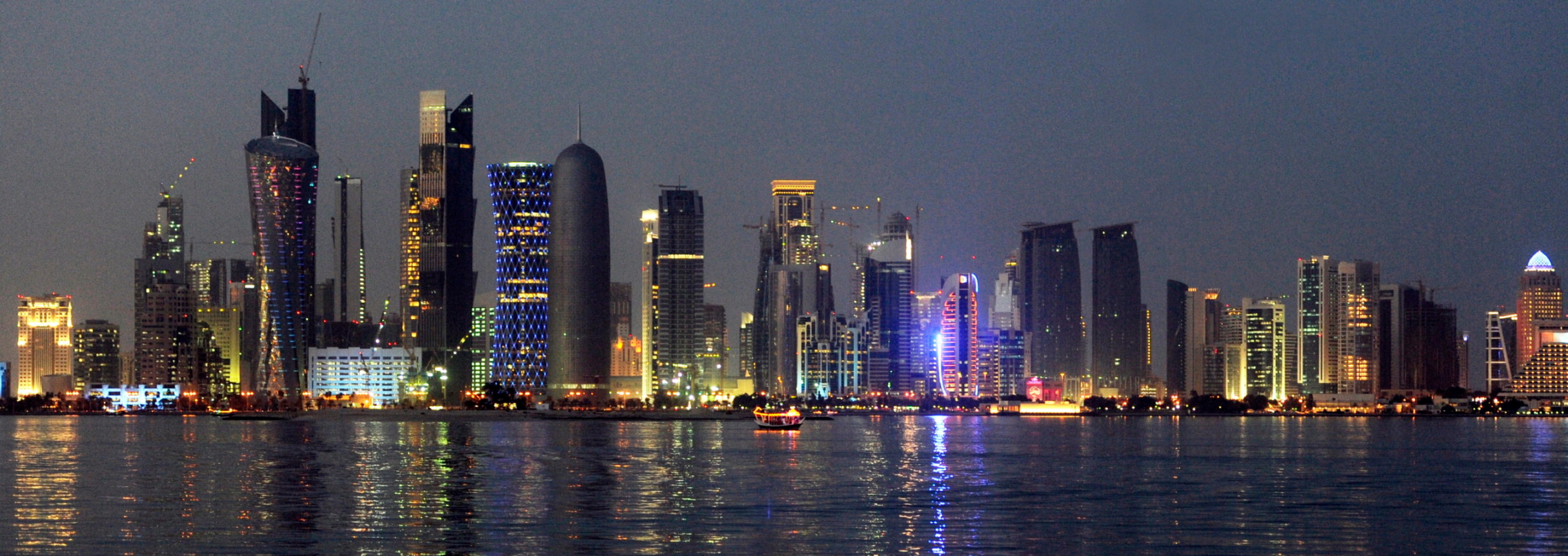
A journalism graduate of New York University (NYU) with considerable publications under her belt will usually have many doors opened for her. Except maybe the doors to the Gulf States.
Kristina Bogos, now a master’s student at the Georgetown University of Foreign Service, was denied a student visa to Qatar where she had planned to pursue her thesis on the labour conditions of migrant workers in the capital, Doha. Their reason was “security-related”.
In a New York Times Op-Ed, Bogos stated “Qatari immigration officers informed me that my name appeared on a “blacklist” maintained by member states of the Gulf Cooperation Council because I had “made trouble” in the U.A.E. Later, Emirati officials told the State Department that they had placed me on the blacklist for unspecified “security-related reasons”.”
The ‘trouble’ was Bogos’ article on the conditions of migrant workers’ labour camps at her alma mater campus in Abu Dhabi. A New York Times investigation showed the deplorable conditions of the migrant workers and the unjust consequences suffered when they organised a strike.
Her visa denial comes after another incident involving Andrew Ross, an NYU professor, who specializes in labour issues. In March 2015, he had planned to spend his spring break at Dubai and continue his research on the migrant labour force there. At Kennedy International Airport, the computer flagged him from checking in. Where the migrant workers above were unlawfully deported, Ross, like Bogos, was then told that he had been barred from entering the monarchy state.
Speaking to Inside Higher Education, Bogos called the university’s deferral to Qatar’s national sovereignty in her case as “a little bit ludicrous, because freedom of movement facilitates academic freedom.”
American Universities in Foreign Countries – Compromises
What happened to Bogos and Ross is one of the issues that arise when a university goes global. Notably when the university sets up branch in countries with government policies that conflict with the university’s ideals such as freedom of speech and academic freedom.
According to Freedom House’s ‘Freedom in the World Report 2016’ which assessed countries’ state of freedom based on the Universal Declaration of Human Rights, U.A.E. and Qatar are both rated as “Not Free” in terms of their political rights and civil liberties.
Human Rights Watch have also reported U.A.E. authorities using “national security” grounds as “the reason for denying activists who have criticized the UAE’s mistreatment of migrant workers entry to the UAE.”
In response to Bogos’ case, Rachel Pugh, a spokeswoman for Georgetown, said “We respect that every sovereign nation retains the right to choose who comes into its borders. As Georgetown engages with countries across the world we continue to advocate our position on the importance of academic freedom”.
Georgetown is said to continue their support for Bogos in her studies and research. Inside Higher Education reports that Georgetown’s dean of foreign service have contacted the dean in their Doha campus to raise Bogos’ case with the Qatari authorities.

Qatari female students covered in Abaya, right, talk to their classmates during a break at the Georgetown University campus in Doha, Qatar. Image via AP.
Be that as it may, the compromise on academic freedom is just one of the facets in this unresolved debate.
Advocates of setting up branches in these countries believe they create new and liberalising opportunities for students and faculty. “We believe our presence in these nations and societies brings more freedom of ideas, not less,” says John Beckman, a spokesman for NYU.
Whereas critics question these partnerships between American universities with illiberal governments and the potential trade-offs that may have been made to set up campus in those states.
More effort is much needed from universities and governments to fix this current state of affairs. NYU’s ability to freely teach and pursue the research they wish in their Abu Dhabi branch is a step forward. So was Georgetown’s decision to raise Bogos’ incident with the Qatari authorities.
But whether this issue between universities and governments can be resolved with zero compromise on the university’s fundamental liberties remains to be seen. The least that can be done until then is to ensure no more bans on any more students or professors because of their academic work. Far too much is at stake for both university and state.
Liked this? Then you’ll love these…
U.S. universities in China get academic freedom, but face internet censorship – report







